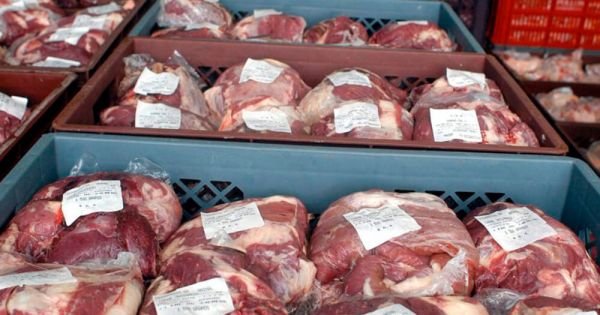Argentina exported 682,000 tons of beef last year, mostly to China
[ad_1]
Argentina exported 682,000 tons of beef last year, mostly to China
China bought 73% of boneless meat and virtually all bone-in meat sold by Argentina last year
Argentina is forecasted to increase 5,1% beef and calf production this year, reaching some 3,3 million tons with a domestic consumption of 2.43 million tons, according to the latest report from the United States Department of Agriculture (USDA). This follows on a record beef exports 2023, 682.000 tons, despite government measures and export levies aimed at curbing prices in the home market in an election year.
The beef shipments (bone-in and boneless) of 682,000 tons, according to data from the Ministry of Agriculture, Livestock, and Fisheries of Argentina were collected by the consultancy Safras & Mercado. The volume is 7.7% higher than the 633,000 tons exported in 2022.
“This growth trend is closely tied to China, which bought 73% of boneless meat and virtually all bone-in meat sold by Argentina,” said analyst Fernando Iglesias from Safras & Mercado.
Argentina caters to a different Chinese demand than Brazil’s: the exported animals are mostly cull females aged over 40 months. Brazilian livestock farmers are required to supply young animals as old as 30 months to the Chinese market.
Local analysts agree that one of the factors that allowed Argentina to export more was a “discreet” increase in local production, according to the analyst.
However, “the deterioration of the purchasing power of the Argentine population reduces the ability to keep meat in the domestic market,” said Hyberville Neto, director of the consultancy HN Agro.
According to Yago Travagini, animal protein specialist at Agrifatto, government measures to limit exports were more political, as not all nine cuts of meat that had exports suspended are highly consumed domestically.
Analysts believe that the country’s exports will either remain stable or drop this year. “It is difficult to predict how this market will behave. We have to monitor the unfolding of the macroeconomic scenario,” said Hyberville Neto.
[ad_2]
Source link




